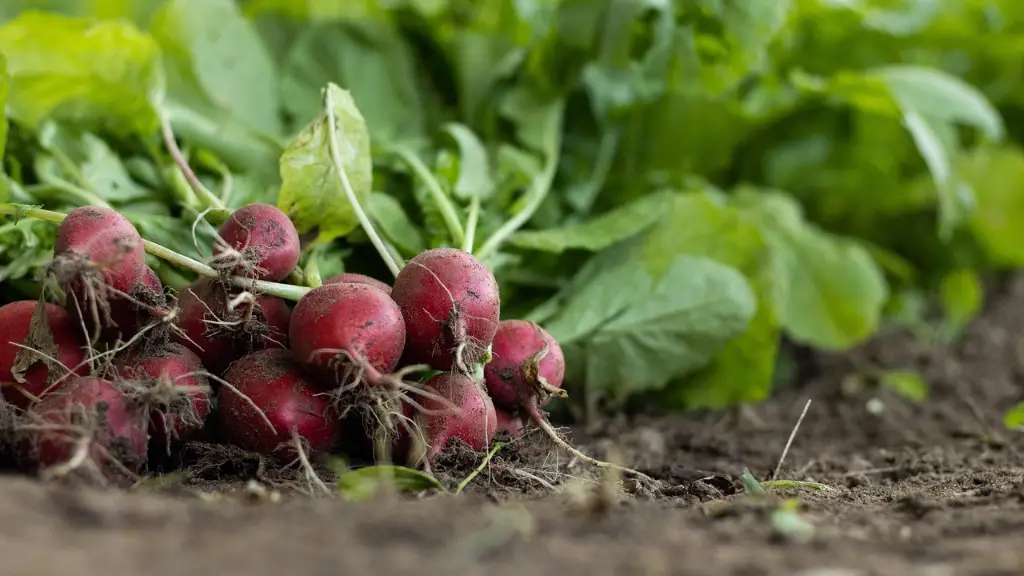Microbiology is the study of small living things, particularly bacteria, viruses, and fungi. These microorganisms are important in agriculture for two main reasons. First, they can help crops grow by providing them with nutrients and improving soil quality. Second, they can cause diseases in plants, which can lead to crop loss. Therefore, understanding microbiology is essential for both maximizing crop yield and preventing disease.
The importance of microbiology in agriculture is that it helps to ensure the safety of the food supply. It does this by helping to control pests and diseases, and by improving the quality of the soil.
What is the important of microbiology in agriculture?
Microorganisms are essential for increasing soil fertility. Some microorganisms, such as bacteria, are very good decomposers. They decompose dead organic matter, which when mixed with the soil will make it fertile. This process is essential for plant growth and for the overall health of the ecosystem.
Microbiology is the study of tiny organisms, generally too small to be seen with the naked eye. Microorganisms are important in food safety, production, processing, preservation, and storage. Microbes such as bacteria, molds, and yeasts are employed for the foods production and food ingredients such as production of wine, beer, bakery, and dairy products.
What are the benefits of microorganisms in agriculture
Microorganisms play a vital role in plant growth and development. They help in fixing nitrogen, acquiring and uptake of major nutrients, promotion of shoot and root growth, disease control or suppression and improved soil structure. All these processes are essential for the healthy growth of plants.
Microorganisms are used in many aspects of daily life, including food production, biodegradation, the manufacture of commercial goods and genetic engineering. They are required in a variety of dishes, for instance, curd and cheese.
What is the role of bacteria in agriculture and industry?
Bacteria are essential for the decomposition of dead organic matter and the release of simple compounds in the soil. Nitrogen-fixing bacteria are especially important for increasing the nitrogen content of the soil, which can be readily absorbed by plants.
Medical microbiologists are responsible for identifying the agents that cause infectious diseases in humans and animals. They also help plan measures to control and eliminate these diseases. This makes medical microbiology one of the most active and important fields in microbiology.
Why is microbiology important in the environment?
Soil bacteria are essential for the health of our crops. They increase drought tolerance, protect plants from disease and provide nutrients necessary for growth. Attention to the microbial sciences can help to stop land degradation and the loss of biodiversity in water, soil, land and air.
Though it might sound niche, microbiology is actually one of the most important sub-sectors of biology. By analyzing microorganisms up close, microbiologists play a crucial role in combating disease, creating chemical products for agriculture, and even helping to keep the planet healthy.
Does agriculture use the study of bacteria
Bacteria play an important role in agriculture, as they can help to improve plant growth and soil health. Agricultural bacteriology is the study of the relationship between bacteria and agriculture, with a focus on bacteria in the soil, water, dairy products, plants and animals. This research can help to improve agricultural practices and ensure food safety.
Saprophytic bacteria are important for the health of the ecosystem. They serve a double purpose: In the first instance, they act as scavengers removing harmful waste from the earth. Secondly, they return it to the soil as plant food. The dead bodies and wastes of organisms (both plants and animals) are decomposed by the activities of the saprophytic bacteria. This process is essential for the maintenance of the ecosystem.
What are the bacterial activities in agriculture?
The root nodules of leguminous plants are home to beneficial nitrogen-fixing bacteria. These bacteria are involved in humus accumulation, decomposition of soil organic matter, fixation of nitrogen and phosphorus, stimulation of plant growth and protection from pathogenic microorganisms. Leguminous plants are an important part of sustainable agriculture, as they help to improve soil fertility and increase crop yields.
Agricultural microbiology is the study of plant-associated microbes, with the aim of addressing problems in agricultural practices that are often caused by a lack of biodiversity in microbial communities. This research can help to improve crop yields, prevent crop diseases, and improve soil fertility. Agricultural microbiologists work with farmers and other agricultural professionals to develop new and improved ways to manage microscopic organisms in crops and soils.
What is microbiology and why does it matter
Microorganisms are tiny creatures that exist everywhere on Earth. They are so small that most cannot be seen with the naked eye. Despite their small size, microorganisms play a big role in our lives. Some microorganisms can cause disease, while others are essential to agriculture and industry. Microorganisms are also vital to the ecosystem and without them, life on Earth would not be possible.
Microbiologists play an important role in many different fields, from agriculture to public health. They can help to manage resources, conduct research, and educate others about the importance of microbes in our world. In the pharmaceutical industry, they can develop new drugs and vaccines to fight diseases.
Why are microorganisms important to soil?
Soil microbes are a critical part of maintaining soil and crop health. They perform a variety of important functions, including nitrogen-fixation, phosphorus solubilization, suppression of pests and pathogens, improvement of plant stress, and decomposition that leads to soil aggregation. Without these important microbes, soils would not be able to support healthy plant growth.
Microbiology has helped to treat and prevent diseases which are caused by viruses, bacteria, protozoa and fungi In medicine, for example, microbiology led to the discovery and development of: Antibiotics, and Vaccines. Microbiology has also been instrumental in the food and agriculture industries, helping to develop new ways to process and preserve food, and to prevent foodborne pathogens.
Conclusion
Microbiology plays a vital role in agriculture, as it helps to improve crop yield and quality, while also protecting plants from disease. In addition, microbiology can also be used to create biopesticides and biofertilizers, which are environmentally friendly alternatives to traditional pesticides and fertilizers.
Microbiology is very important in agriculture as it can help to improve crop yields, promote plant growth, and protect plants from diseases. Microorganisms can also improve the soil quality and help to release nutrients that plants need for growth.




